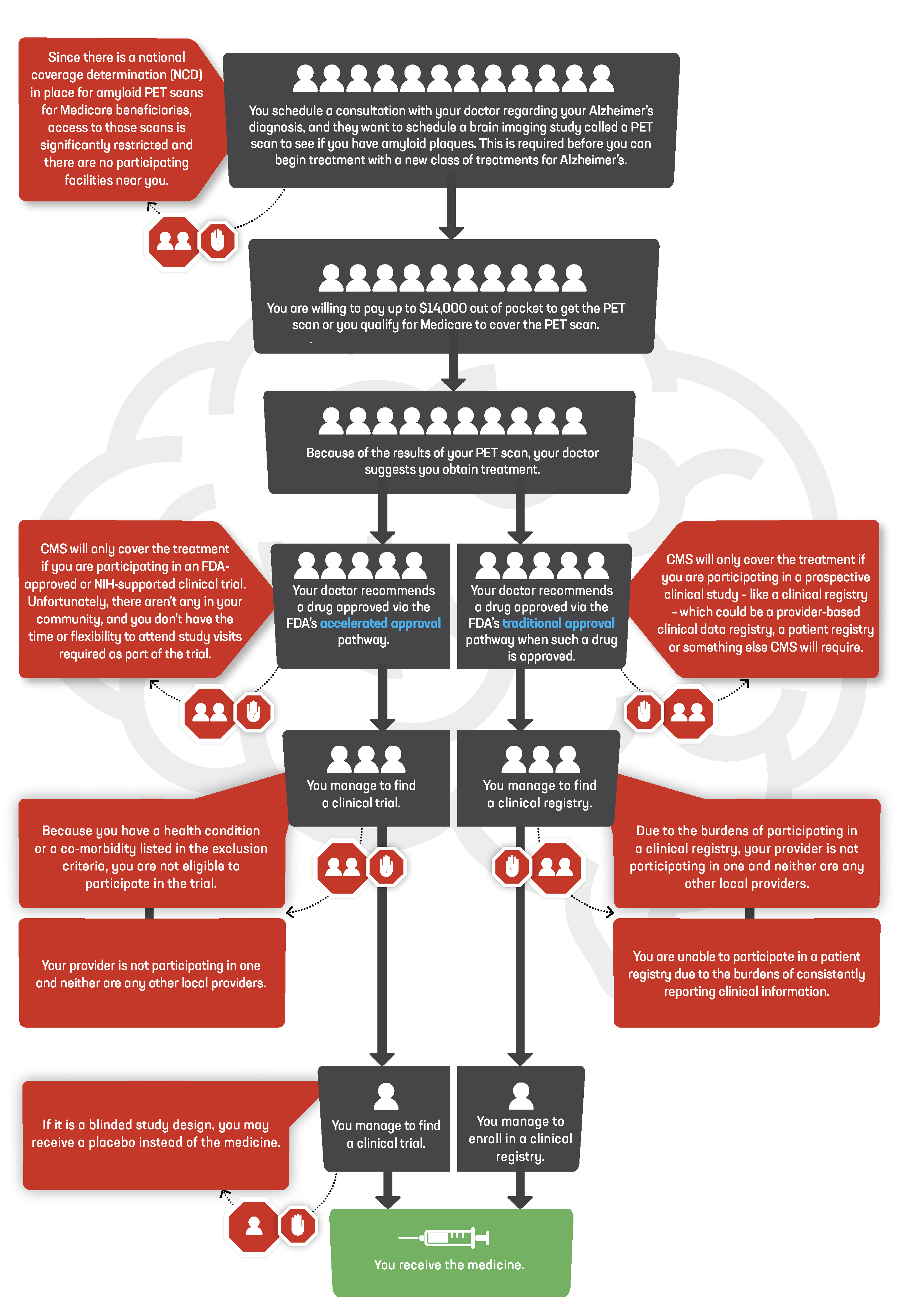There’s been a lot of discussion this year about the Centers for Medicare & Medicaid Services (CMS) national coverage determination (NCD) for new Alzheimer’s treatments finalized earlier this year in April. Their policy, finalized this past April, puts in place barriers between Alzheimer’s patients in Medicare and potentially life-changing treatment. But, unfortunately, this new NCD isn’t the only coverage barrier these patients face.
To help determine an accurate diagnosis for patients and appropriate options for a course of treatment for Alzheimer’s, patients may get PET beta amyloid imaging, or a PET scan. But access to this test is also restricted through an NCD. It specifies that Medicare will only cover the test once in a patient’s lifetime, and only in a study that is part of CMS’ coverage with evidence development policy. This means a senior who may have Alzheimer’s that receives a scan earlier in their disease state or diagnostic efforts and is found to not to meet the qualifications for certain treatments will never be able to receive Medicare coverage to take the test again later in their disease progression or diagnosis efforts. Considering how Alzheimer’s and many other neurodegenerative diseases progress, this is extremely problematic.
This NCD has been in place for almost a decade, and finally CMS is seeking comments on proposed changes to it. In recent comments to CMS, PhRMA raised significant concerns with the current NCD for PET beta amyloid imaging and urged CMS to remove both the one PET scan per patient per lifetime policy under this NCD, as well as the onerous coverage with evidence development restrictions in the NCD that currently impede beneficiary access.
Alzheimer’s patients, like other patients with neurodegenerative diseases, face so many barriers to treatment in Medicare, as illustrated by the graphic below. CMS should be helping patients access care, not creating more issues for patients battling this devastating disease.

While biopharmaceutical companies have made tremendous progress in scientific and medical innovations for neurodegenerative diseases like Alzheimer’s over the past decade, efforts are in vain if patients are prevented from accessing these life-altering treatments.
Learn more about the potential difficulties of a patient’s journey in accessing Alzheimer’s treatment under these conditions here.




